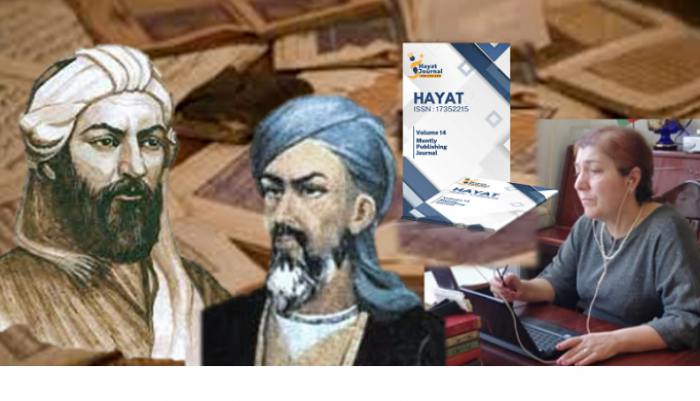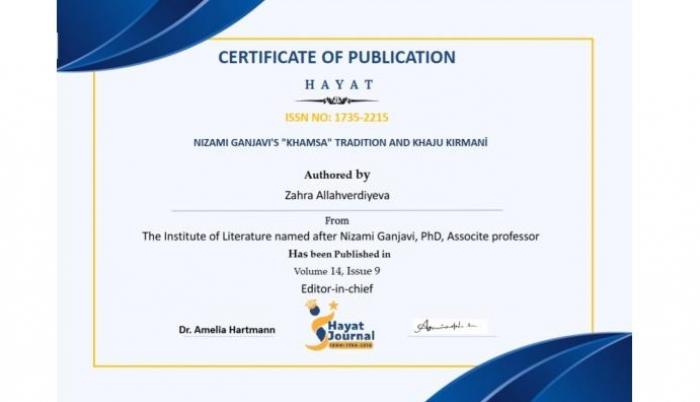
The article by the leading researcher of the Nizami Studies Department of the Nizami Ganjavi Institute of Literature of ANAS, PhD in Philology, Associate Professor Zahra Allahverdiyeva on “NIZAMI Ganjavi’s “Khamsa” tradition and Khaju Kirmani” was published by the multidisciplinary journal “HAYAT JOURNAL”, which is included in the international SCOPUS active database (Hayat || V-14 || Issue 09, 2025, p.1-9).

The article shows that Nizami Ganjavi (1141-1209), a powerful master of words of the Azerbaijani poetry school, who rose to a very high peak in the 12th century, determined the bright future of the development of the epic genre in the poetry of the peoples of the Near and Middle East with his “Khamsa” creation. Nizami Ganjavi transformed the main features of the Eastern Muslim Renaissance - humanism, ideas about the supremacy of man - into the leading principles of the literature of the period. Through the themes of "Khamsa", he revived the artistic and theoretical thought of the peoples of the East within various modes and layers, and Nizami's "Khamsa" themes were the beginning of a new literary stage and direction in human culture.
In the article, the scholar identifies the theoretical principles of the development of the "Khamsa" tradition in Middle Eastern literature and studies the influence of Nizami Ganjavi's "Khamsa" themes on the work of the prominent Iranian poet of the 14th century, Khaju Kirmani.
This newly published article is an important source in the study of the literary and cultural relations that continued between the peoples of the Middle East over a long period.
